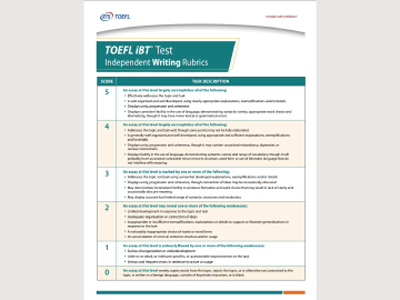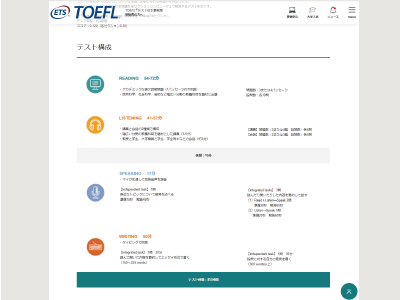TOEFLテストや英語学習を通してグローバル人材になるためのヒントをお届けします。
- トップページ
- TOEFL iBT®テスト
- ETS公認トレーナーと勉強しよう! TOEFL iBT®テスト Web準備講座
- 第3回 関係代名詞whatの多用を避け、文意を明確に
ETS公認トレーナーと勉強しよう!TOEFL iBT® テストWeb準備講座
学習者が書いたエッセイを、添削・アドバイスする「ウェブ公開授業」

- 横川綾子先生
明治大学 国際連携機構 特任教授 - ETS Authorized Propell® Facilitator
ETS TOEFL ITP® Teacher Development Workshop Facilitator - プロフィールはこちら
みなさん、こんにちは。「ETS公認トレーナーと勉強しよう!TOEFL iBT® テスト Web準備講座」を担当する横川綾子(よこがわあやこ)と申します。今回は、前回のアドバイスを元にモデル学習者のアイコさんがリライトしてくれたエッセイを、みなさんと一緒に読んでいきます。エッセイを添削してもらう機会がある人は、添えられたコメントを読んで終わりにするのではなく、必ず全文を書き直してくださいね。実際にタイピング入力することで、正しい表現や英文を手が覚える、タイピングの速度や正確性が上がるといった効果が期待できます。It kills two birds with one stone, doesn’t it?
第3回 関係代名詞whatの多用を避け、文意を明確に
学習者のご紹介

- 大学1年生 医学部 アイコさん(仮名)
- <現在の英語力>
高校2年(3年前)に英検準1級を取得。長期留学等の経験はなく、第二言語としての英語と格闘中。Reading、Listeningに比べてWriting、Speakingが苦手。初めて受けた2014年5月のTOEFL iBTテストの結果は77点(R:27、L:19、S:15 、W:16)。
<TOEFL iBTテストを受験する理由>
1年後に北米の大学に留学を検討している。目標とするスコアは、89点以上(志望する大学の基準)。
<TOEFL iBTテストの学習で困っている点や悩んでいる点>
Speaking、Writingなどのアウトプットに時間がかかる。その他にはWriting の書き方の様式に関して、参考書と語学学校の先生の言っていることが微妙に違っているので、最低限従わないといけないルールと理想的なessayの書き方が知りたい。
<留学したい理由>
将来、海外(できればアメリカ)の大学院に進学を検討しているため、1年後に留学し、語学力を向上させたい。また、北米の大学でリベラルアーツを学んでみたい、というのも動機の一つ。
<英語学習全般での課題や質問>
Speakingの能力に不安がある。話すときもゆっくりで時間がかかる。また、発音が悪いのでできる限り矯正して、通じやすい発音にしたい。
前回の記事では、エッセイに、より説得力を与えるために3つの提案をしました。
(アイコさんが1回目に書いたエッセイとそれに対するコメント全文は第2回 エッセイに説得力を持たせるにはをご覧ください)
- 1.主張を裏付ける「理由」を説明する際には、具体例・経験談・例え話を盛り込む
- 2.主張を裏付ける3つの理由は、それぞれ異なる視点から論じる
- 3.賛同しない方の意見・立場のマイナス面に言及しても良い
このアドバイスをアイコさんはどう活かしてくれたでしょうか。リライトされたエッセイを見てみましょう。
エッセイのテーマ
Topic 1
Do you agree or disagree with the following statement?
“Teenagers should have jobs while they are students.”
Use specific reasons and examples to support your opinion.
あなたは以下の意見に賛成ですか、反対ですか。「ティーンエイジャーは学生のうちに仕事を持つべきか」自分の意見の根拠となる特定の理由と例を用いなさい。
リライトされたエッセイ

- I agree with the statement that teenagers should have part-time jobs while they are students, because having a job gives them a sense of responsibility, is a useful experience and motivate them to study hard.
First, teenagers can come to feel sense of responsibility if they work part time. When they are in their working place, they are treated as adults and they need to take responsibility for what they have done. On the other hand, while in school, they are treated as teenagers, in short, immature people, so they are free from some responsibilities adults have. Students spend most of their time in school or at home where adults always take care of them. For example, if I am late for the class, my teacher will frown at me, but that is all. On the other hand, if I take a part time job and I am late for working, I will get fired. Thus, it is quite important for teenagers to work by themselves, without their protectors, and become responsible.
Second, students can gain useful experience for their future. Students can acquire a lot of skills and knowledge while working. They will have an advantage when looking for jobs or they think about what career they should choose. For example, they can be familiar with some easy computer algorithm if they work for a computer company. Moreover, they may make some connection in the field they want to work. If they get to know someone in a company, they may find a job there more easily. So, working part time can give students valuable experience.
Finally, students can understand how important it is to study through their jobs. While they are working, they may realize what they are studying at school is meaningful and helpful for their job. If they do so, they will study much harder. I often hear many of my classmates say, “Why do I have to study it? It has nothing to do with my future.” In fact, what we learn is an important base of our knowledge, however it is difficult to realize the fact. So, it is good to work part time in order to study more eagerly.
For these three reasons, I think it is better for teenagers to work when they are students. If they have jobs, they can grow up, gain advantages for their future and get motivated. These skills will have a great influence on their lives, so they should acquire them while they are young. (418 words)
エッセイ添削例
First, teenagers can
Second, students can gain useful
Finally, students can
For these three reasons,
英文校正協力:Paul Strifler
横川先生からアドバイス

- リライトされたエッセイを読んだ第一印象は「説得力が増強されている」ということ。例えば、第2パラグラフで「授業に遅れても先生に眉をひそめられるだけだが、アルバイトに遅刻したらクビになる」とわかり易い具体例を出して、仕事を通じて学生が責任感を持てるようになる利点を説明しています。また、「アルバイト経験を通じて、勉強の価値がわかるようになる」という3つ目の理由は、それまでの理由(責任感を持てるようになる、有益なスキルや人脈を得られる)と異なる視点ものです。リライトされたエッセイには、前回のアドバイスがしっかりと反映されていることが見て取れます。担当トレーナーとしては嬉しい限りです!
このように、アイコさんのエッセイはTOEFL iBTテストのWritingセクション Independent Task の評価ポイントであるDevelopment(主張の展開)の面で、さらなる進化を遂げました。そこで今回は、別の評価ポイントであるAppropriate and precise use of grammar and vocabulary(文法と語彙の適切で正確な運用)にスポットを当ててみたいと思います。リライト版のエッセイには、意味の理解を妨げるほどの文法や語法のミスはありませんが、気になる部分がありました。関係代名詞whatの多用です。 -
リライト版エッセイでは、関係代名詞whatが4か所使われており、1か所は文ごと削除、3か所には修正が入っています(太字部分)。では修正案が出された3つのwhatを順に見ていきましょう。まず、第2パラグラフではwhat they have done(彼らが行ったこと)が、their actions(彼らの行動)となっています。名詞actionが書き手の意図をより簡潔に表しています。また、第4パラグラフではwhat they are studying at school(彼らが学校で勉強していること)を、前文のstudying(勉強すること ※原文ではto study)を受けてitとしています。文意は若干変わりますが、itで置き換えるとto study/studyingを繰り返す必要がなくなります。さらに、同じ第4パラグラフのwhat we learn(私たちが学ぶこと)が 、working part time(アルバイトすること)と、より具体的な名詞句に書き換えられています。原文のwhat we learn is an important base of our knowledge(私たちが学ぶことは、私たちの知識の重要な基礎となる)と比べると、修正案のworking part time can be an important base for knowledge(アルバイトすることは、知識の重要な基礎となりうる)の方が、より具体的に状況を思い浮かべることができるのではないでしょうか。
関係代名詞whatは便利ですが、使い方によっては文意を曖昧にしてしまうリスクを伴います。whatを使って言おうとすることが名詞(句)で具体的に表現できる場合は、whatの使用を避けましょう。エッセイライティングでは、冗長さを排除し、書き手の意図を明確かつ簡潔に伝える表現法を常に模索する姿勢が求められます。
what + S(主語)+ V(述語動詞)=SがVするもの・こと
【例文】What you said was true.(あなたが言ったことは本当だった)
what + V(述語動詞)=Vするもの・こと
【例文】Nobody knows what will happen.(何か起こるかは誰にもわからない)
1.「~すること」と書きたくなったら、それが具体的に何を表すかを考える
2.「~すること」を名詞(句)で表現できないか検討する
3. 代替案がない場合は、what (+ S ) + Vの構文を使う
いかがでしたか?何気なく使いがちな関係代名詞whatですが、多用を避け、書き手の意図が読み手にしっかり伝わるような工夫が必要ですね。では次回(第4回 エッセイライティングで養う複眼思考)にお会いしましょう。

- TOEFL iBT®テスト スコアガイド(Writing)
- TOEFL iBTテストのWritingセクションの採点基準が分かるスコアガイドもチェックしてください。

- TOEFL iBT®テスト テスト構成
- テストの問題数や内容はテスト構成をご確認ください。